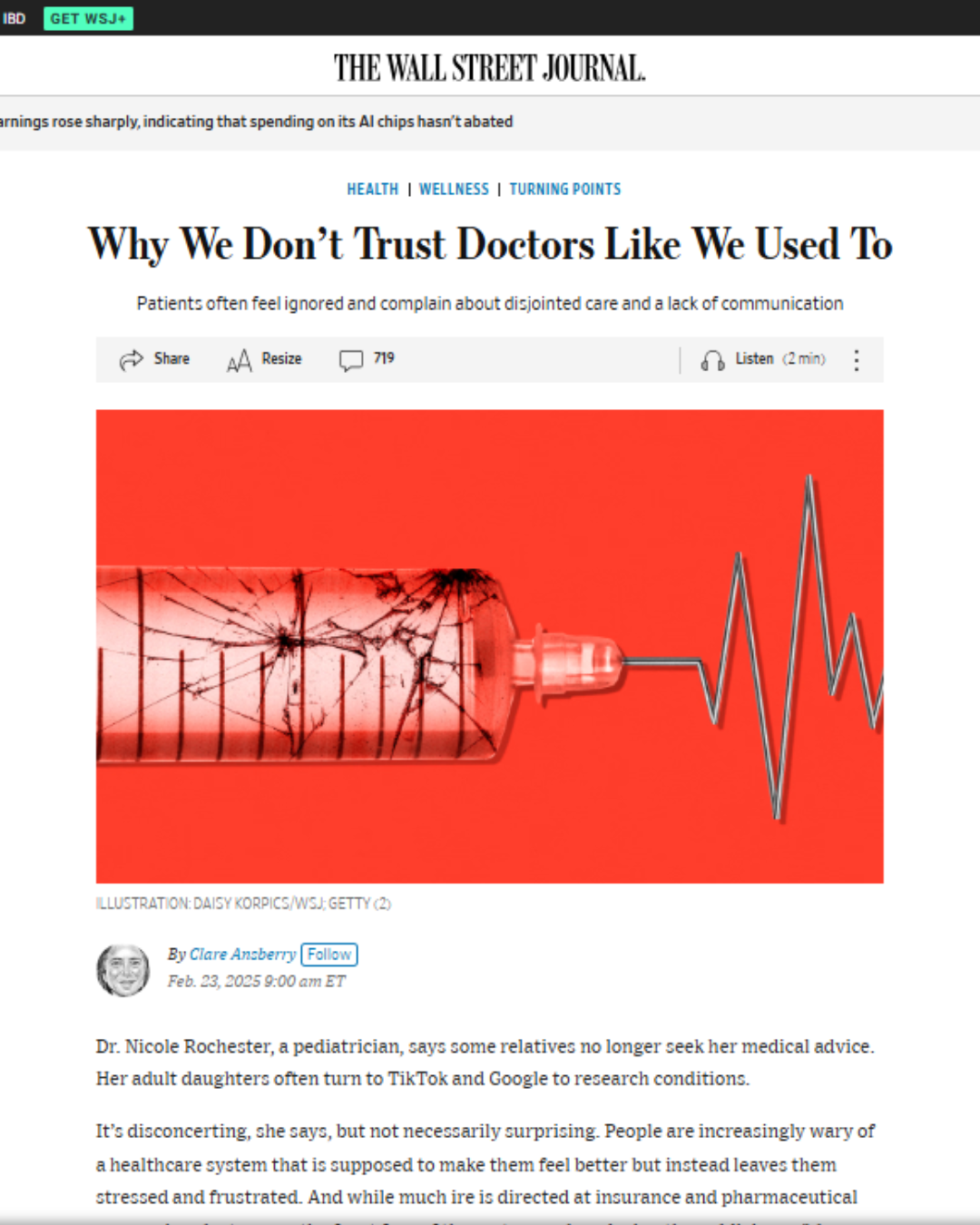Part 3 of a 3-Part Series in recognition of Health Literacy Month
I’m the parent of a strong-willed, teenaged daughter. Since she was a very young child, she’s always wanted to know the “why” behind just about everything, including the many directives issued by me and her dad. While this can sometimes be exasperating, I have learned to appreciate her desire to fully understand the things that impact her life and her experiences. While every parent (myself included) has likely uttered the phrase, “Because I said so”, you’re much more likely to have a lasting impact on your child’s decision-making when you explain WHY certain choices are important.
The same is true in the doctor-patient relationship. My dad had end-stage kidney disease, which meant his kidneys were no longer able to remove toxins from his blood. This required him to go to dialysis three days a week. His treatment also included numerous dietary and fluid restrictions. He knew that he was not supposed to eat tomatoes and tomato-based products. Yet, he frequently “cheated” and would do so anyway. He even knew that the reason he wasn’t supposed to eat tomatoes was that it would make his potassium high. My sisters and I would remind him of this restriction regularly, but one day when I was particularly frustrated, I said, “Daddy, do you know that if your potassium rises to a dangerously high level your heart can stop and you can die?” It turns out that he knew having a high potassium level was a serious issue, but he didn’t know it could kill him.
The National Patient Safety Foundation’s (www.npsf.org) health literacy campaign, “Ask Me 3”, encourages patients and family members to ask their health providers 3 questions in order to be active participants in their health care. In part one of this series, I reviewed the first question you must ask at every doctor visit: What is my main problem? In part two, we discussed the second question: What do I need to do? In this article, we wrap up the series with question #3.
Question #3- Why is it important for me to do this?
Studies show that less than 50% of patients follow through with their doctor’s recommendations. One of the most notable examples of this problem relates to medication use. Have you ever completed a course of antibiotics without missing a dose? If so, you are definitely in the minority. Not only do patients struggle to take medications for acute illnesses properly, but they also do not consistently take medications prescribed for chronic illnesses, even when those medications are prescribed after life-threatening events, such as heart attacks. Individuals who don’t take their medications properly have increased rates of hospitalization and death. Knowing these high stakes, doctors often find themselves asking, “Why don’t patients just do what is best for their health?”
Healthcare professionals have traditionally referred to patients who don’t follow their recommendations as “non-compliant”. The newer, more acceptable lingo is “non-adherent”. The former term implies deliberate or intentional refusal to follow recommendations and the latter acknowledges that there are many barriers that prevent patients from doing what they are asked to do. I’ll admit to having used both of these terms in the past, but the truth is that they are somewhat derogatory and equate to finger-pointing and patient-blaming.
In reality, health care providers often fail to have meaningful conversations with patients and their caregivers. When patients don’t have a thorough understanding of their medical problem, the purpose of the treatment plan, and the potential complications, they are less likely to follow the doctor’s recommendations. The authors of an article about adherence to diabetes treatment stated, “Patients adhere well when the treatment regimen makes sense to them, when it seems effective, when they believe the benefits exceed the costs, when they feel they have the ability to succeed at the regimen, and when their environment supports regimen-related behaviors. “ This should be framed and placed on the wall of every waiting room and examination room.
In short, patients need to understand WHY the medications, dietary restrictions, and lifestyle modifications are important.
One of the unfortunate consequences of shortened office visits and the electronic medical record is that there is very limited quality face-to-face time for doctors and patients to engage in these critical discussions. Healthcare providers must do better, but so must patients and their caregivers. You need to ask “why”. A thoughtful, focused question from an engaged patient or family member is one of the best ways to get a busy, distracted physician back on track.
Make sure you understand why you need to get a CT scan, why your doctor is changing your medication, and why she’s asking you to exercise three times a week.
Be sure to ask about the complications that will occur if you don’t follow through with your doctor’s recommendations.
Be honest if, for whatever reason, you are unable to adhere to the recommendations so that your doctor can consider modifications to the treatment plan that will give you your best chance at success.
It is critically important that you take an active role in your health. Don’t be intimated by your physician and other healthcare providers. Be that curious toddler or that annoying teenager, and be sure to ASK WHY.
To recap our health literacy series- 3 questions you must ask at every doctor visit: Question #1: What is my main problem? Question #2: What do I need to do? Question #3: Why is it important for me to do this?
This article is the last in a 3-part series in recognition of Health Literacy Month. Health literacy is defined as the degree to which individuals can obtain, process, and understand basic health information and services needed to make appropriate health decisions.” For more information about health literacy, please read my article, Do You Understand What Your Doctor is Saying to You.
Have you joined the Your GPS Doc Family? If not, please click here to receive notifications about new content as well as useful guides and additional resources only available to Your GPS Doc subscribers.








Leave A Comment